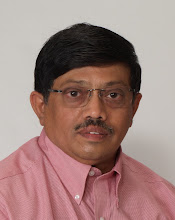"Confessions of a Swadeshi reformer" by Yashwant Sinha
The book is indeed written by a “reformer”; am not sure this is however a “confession”.
Yashwant Sinha is one of the unsung heroes in the history of India’s economic reforms.
After 24 years in civil service as an IAS officer, Sinha switched to politics in 1984. He had two short spells as Finance Minister; in both instances the governments were brought down by moral low points of Congress party. In the first instance, the Chandrasekar administration (supported by Congress from outside) was brought down by Congress ostensibly because two sleuths were spying on Rajiv Gandhi. In the second instance, Gomango, a Congress MP who had taken office as CM of a State (and therefore was morally obliged to resign from Parliament) voted to bring down Vajpayee government by a wafer thin margin of one vote. Sinha came back as Finance Minister when Vajpayee formed his second government after winning elections; and went on to become the fourth man to present five budgets.
Sinha inherited an insolvent economy the first time; and had to pledge 20 tonnes of SBI’s gold with the Bank of England to get $ 400 million foreign exchange to tide over the crisis. He did not flinch in making hard decisions in spite of the negative popularity that would entail. Sinha swore to himself that he would not let that happen again. Sinha prepared, as per Dr Arjun Sengupta, an eminent economist, a truly revolutionary budget after the crisis; but was unable to present it because the government fell. Otherwise, it would have been Sinha, and not Dr Manmohan Singh, who would have become the poster boy of economic reforms.
The five budgets that Sinha was able to present later did not, unfortunately, have the same revolutionary edge.
The book however is certainly not a “confession”. There is nothing in the book that was private prior to disclosure and nothing that is sensational that would give a different perspective to the reader.
The book is still a good read because this is a reasonably honest account of a hero who thought more about strategic wins than immediate popularity. The alleged statement of Jana Krishnamurthy when he listened to Sinha’s economic agenda sums up Sinha’s philosophy: “It is good to implement your agenda; but we need to stay in power to implement your agenda. Your agenda may not allow us to remain in power for long”. The true dilemma of a statesman who has to however keep getting elected.
Three disclosures disturb a reader:
(a) Sinha claims that the budgets prepared by several of his predecessors were known ahead of turn to an industrial group.
(b) “Someone” close to PM Vajpayee’s office called Sinha to direct him to reduce tax on a product (that would have been useful to an industrial group). Sinha checked with the PM. No such directions were given. Sinha did not comply with the request. Sinha does not name the person who conveyed the alleged directive. The reader can understand Sinha’s reluctance since he is continuing to be in politics. But the book is not yet a “confession”. It would become one when Sinha is ready to name the person and get him/her out of politics.
(c) Chief Minister Jayalalitha slipped a note (listing all the income-tax disputes and cases Sinha's Finance ministry had with Jayalalitha) to Sinha after a lunch Sinha had with Jayalalitha in her home. Sinha claims he did not act on the note. If she indeed gave a note as Sinha claims, that is a low point in Jayalalitha’s political career!
Sinha is one of my favourite politicians in India. He had the moral timber to resign at the whiff of a suggestion of involvement in a havala case that was orchestrated by wily Narasimha rao. He did not contest elections until he was cleared by courts. He did not do a piggy back ride on a party. He won elections in Bihar each time he played a role in the government. He was a true reformer with a vision that went beyond the next elections. Above all, he did not strive to bring his children into politics – a clear sign that politics is not of economic advantage to this politician.

2 comments:
Hi..
I do not know anything about what a financial minister of a nation does.. do you think this book will be useful for me to understand..
I am Avinash doing B.tech.
Yes Avinash, you would get some idea. In a stereotypical biography, you would not. However, Yashwant Sinha has stayed away from writing about himself as a person and has focused on his role as Finance Minister. Therefore the book could provide some answers to you.
Post a Comment